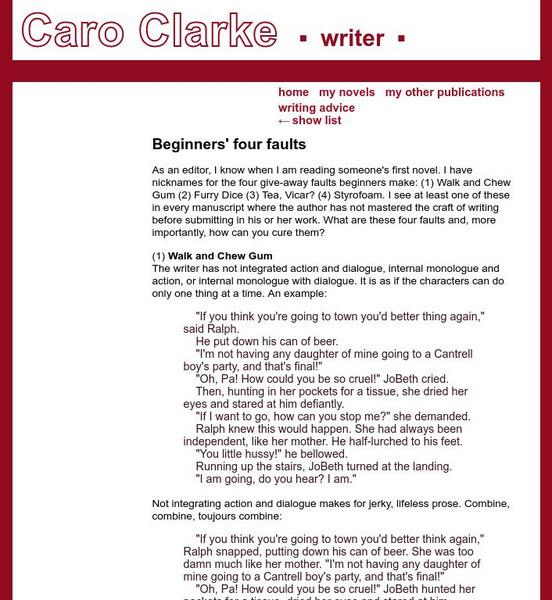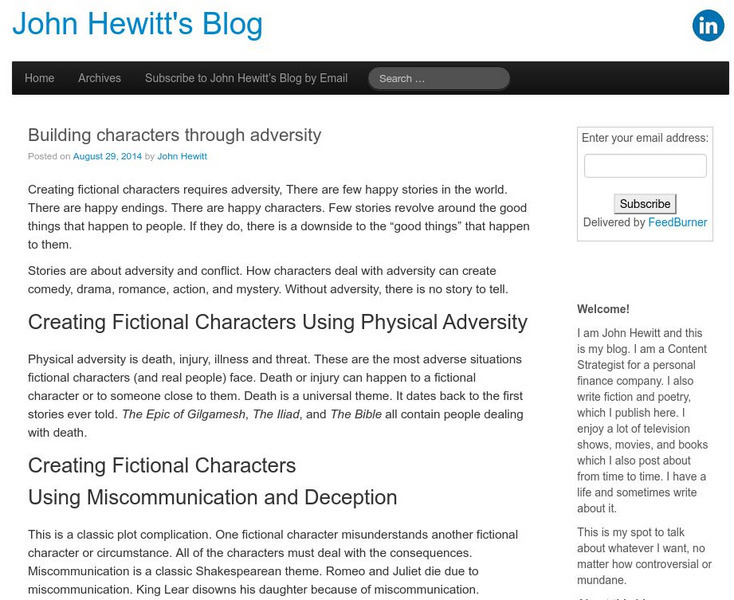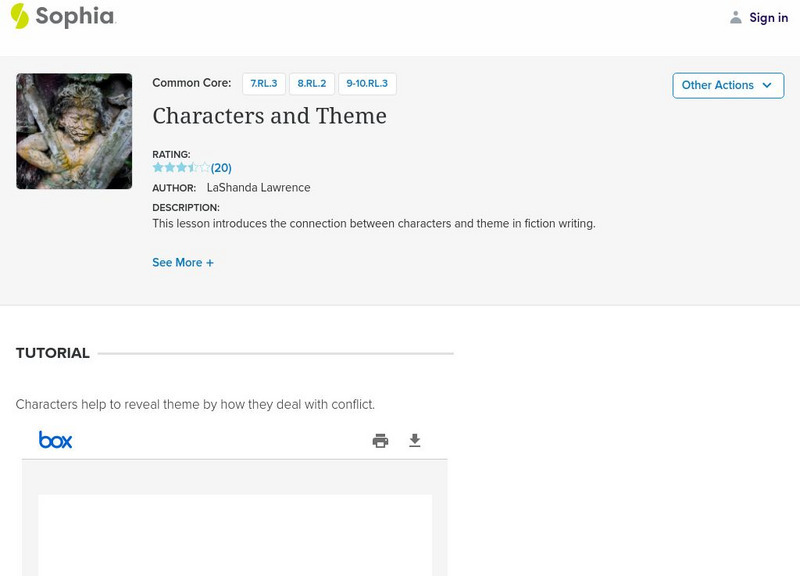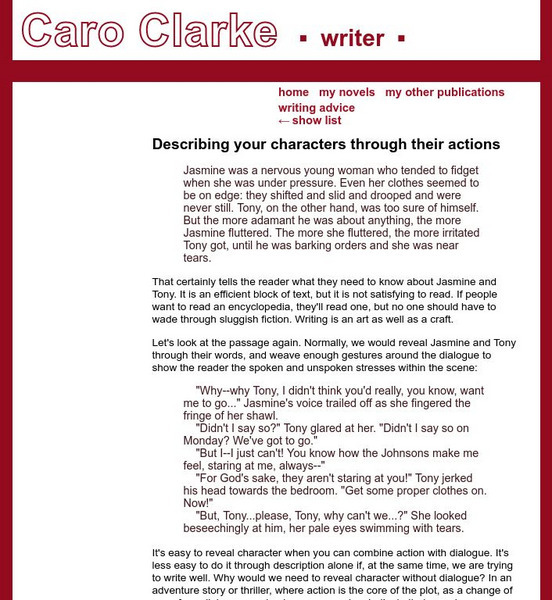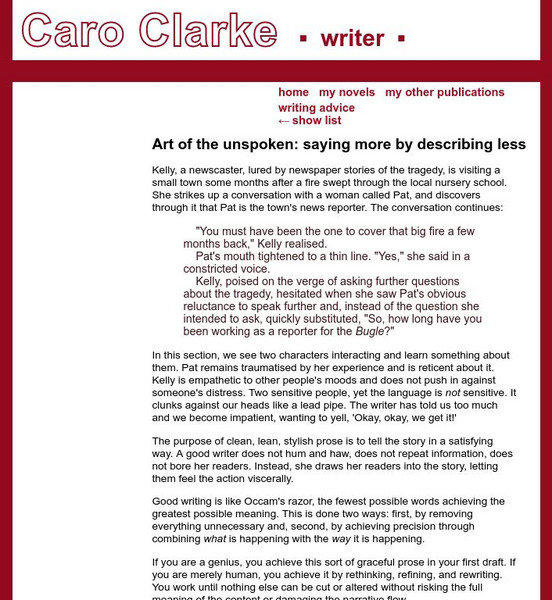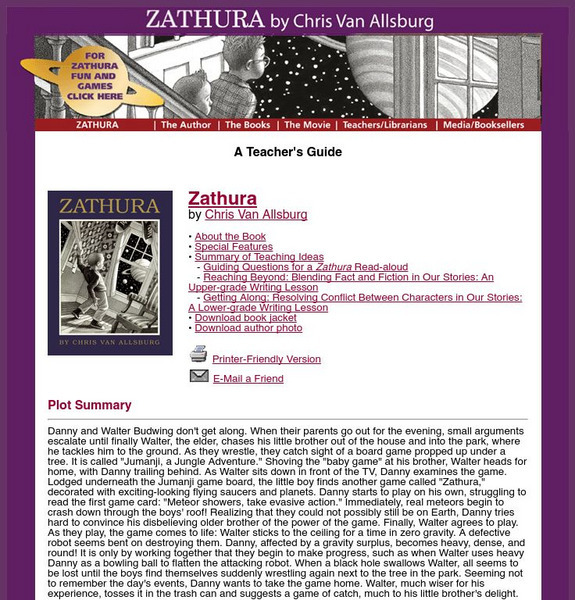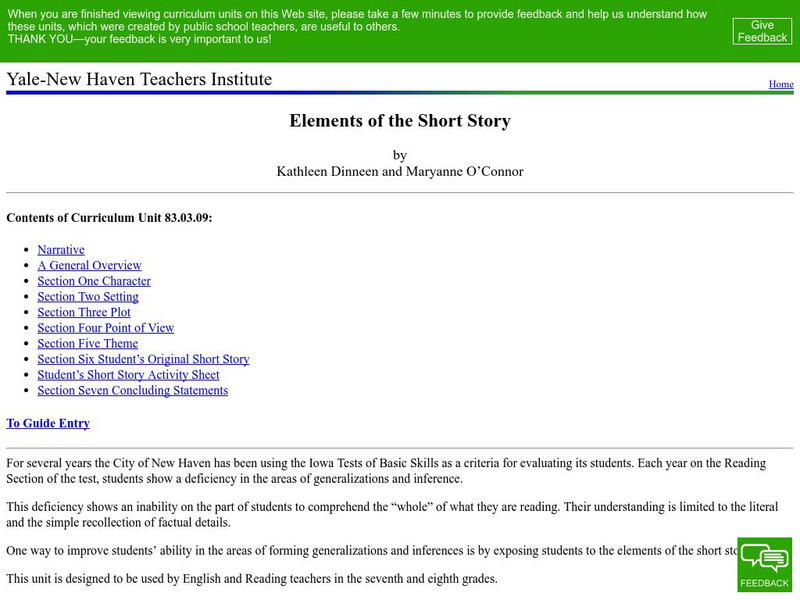Hi, what do you want to do?
Caro Clarke
Historical Fiction: Who Rules?
This is the fifteenth article in a series designed to help the new novel author. This article focuses on the genre of historical fiction and the role of the author. Is the author a researcher or a story-teller?
Other
Kim's Korner: Graphic Organizers for Writing and Reading
What are graphic organizers for reading and writing? Use this site to learn more about these learning tools.
Caro Clarke
Caro Clarke: Writing Advice: Beginner's Four Faults
This site is a personal site from Caro Clarke. The third installment in this series looks at the four major mistakes made by beginning authors. The main idea of this article is that the author needs to be able to combine dialogue with...
Other
Building Characters With Adversity
Extensive and very interesting article advising the reader on how to develop characters through adversity.
Sophia Learning
Sophia: Characters and Theme
This lesson introduces the connection between characters and theme in fiction writing. RL.9-10.3 Analyzing Characters
Sophia Learning
Sophia: Characters and Setting
This lesson introduces the connection between characters and setting in fiction writing.
Caro Clarke
Not Stopping the Reader: How to Avoid Stumbling Blocks
This is the eighth article in a series that focuses on helping the new novel author. This article looks at how the author can avoid creating stumbling blocks that disrupt the flow of the novel.
Caro Clarke
Describing Your Characters Through Their Actions
This is the tenth in a series of articles designed to help the new novel author. This article focuses on how to develop characters through their actions instead of simply relying on dialogue and description of thoughts. W.11-12.3d...
Caro Clarke
A, B, and C Characters
This is the ninth article in a series that focuses on helping the new novel author. This article focuses on what the author calls "A, B, and C Characters," used to describe the different levels of characters.
Caro Clarke
Caro Clarke: What Is Conflict?
This is the sixth in a series of articles designed to help the new writer with their novel. This article focuses on conflict and how it effects the characters and the plot of the story. W.11-12.3a Narratives
Caro Clarke
Explaining Too Much: Why More Is Less
This is the eleventh article in a series that is designed to help the new novel author. This article focuses on how to eliminate needless information in your novel. The key is to not explain too much about the action.
Caro Clarke
The Art of the Unspoken: Saying More by Describing Less
This is the thirteenth article in a series that was developed to help the new novel author. This article focuses on how good descriptions aren't necessarily connected with a lot of words, good descriptions are clean and to the point.
Other
Literature Unit: "A Day No Pigs Would Die"
This site features questions for each of the chapters in Robert Newton Peck's "A Day No Pigs Would Die."
Houghton Mifflin Harcourt
Houghton Mifflin Books: Zathura by Chris Van Allsburg
This comprehensive teacher's guide for the book "Zathura" by Chris Van Allsburg provides us with an opportunity to examine how writers blend scientific information with a fictional story.
Yale University
Yale University: Elements of the Short Story
This unit from the Yale University on elements of the short story is designed to develop student comprehension skills, particularly making inferences and generalizing. It also involves students in reading a number of short stories to...
Books in the Classroom
Carol Hurst's Children's Literature Site: Phyllis Reynolds Naylor
This site is a discussion of some of Phyllis Naylor's works and contains information about the author and evaluates the themes and ideas that she expresses in her writing. It also contains some plot summaries of some of her books.







